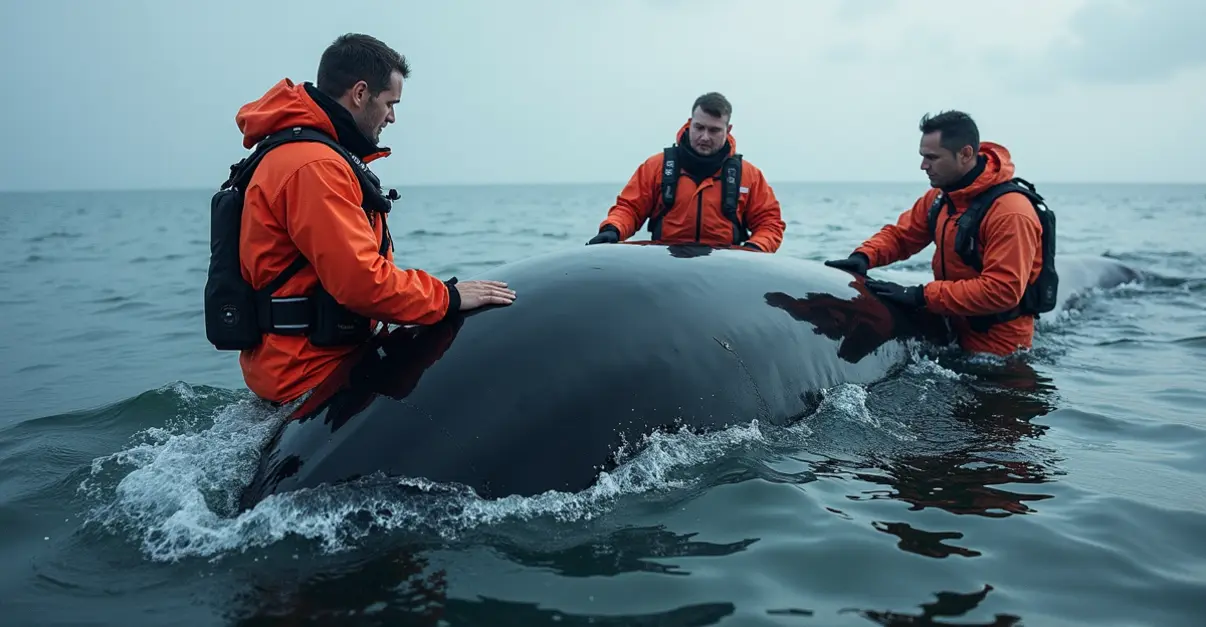
Historic Marine Rescue Operation in Belgian Coastal Town
In an unprecedented marine rescue operation, a 6-meter dwarf minke whale that stranded on the beach of Heist, Belgium, has been successfully returned to the North Sea after multiple rescue attempts. The remarkable rescue, which occurred on August 31, 2025, marks the first successful refloating of such a large cetacean in Belgian waters in over three decades.
Complex Rescue Operation
The rescue mission involved coordinated efforts from multiple agencies including the Royal Belgian Institute of Natural Sciences (KBIN), local police, and municipal services. According to Kelle Moreau of KBIN, "This is quite unique that we managed to keep such an animal alive on the beach. In 30 years, we have never experienced this. The rescuers, police, and city services did fantastic work."
The initial rescue attempts saw the whale returned to sea twice, but the animal continued to strand itself. Rescuers maintained the whale's hydration by creating an improvised pool and continuously pouring buckets of water over its body. They placed towels on the animal and used a bulldozer to dig a channel facilitating its return to deeper waters.
Innovative Rescue Techniques
The successful final attempt involved placing a plastic sheet under the approximately several-thousand-kilogram whale, with about fifteen people guiding the marine mammal back into the water. A veterinarian confirmed the whale appeared healthy otherwise, suggesting it may have simply become disoriented.
Dwarf minke whales (Balaenoptera acutorostrata) are the smallest members of the baleen whale family, typically reaching lengths of 7-10 meters. They are known for their curious nature and are commonly found in temperate and polar waters worldwide.
Marine Conservation Significance
This successful rescue operation provides valuable insights for marine mammal stranding response protocols. Whale strandings, while relatively rare in the southern North Sea, present significant challenges for conservation authorities. The collaboration between scientific institutions, emergency services, and local communities demonstrates effective wildlife protection measures in action.
Marine biologists will continue monitoring the area to ensure the whale does not re-strand, though no further sightings have been reported since the successful rescue.

 Nederlands
Nederlands English
English Français
Français Deutsch
Deutsch Español
Español Português
Português




